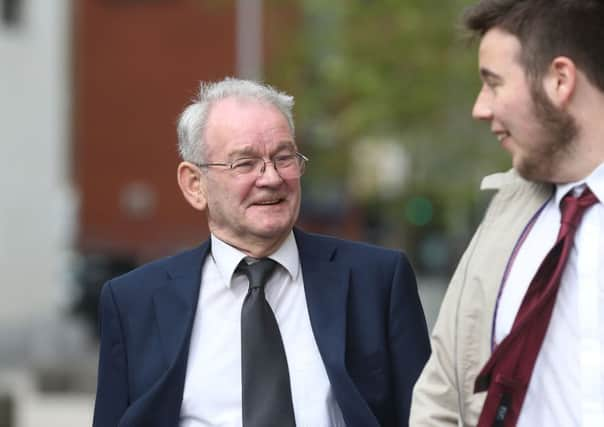Kingsmills inquest: Investigating officer blames missed chances on staffing


Retired DCI James Mitchell of Newry CID was giving evidence at the inquest into the attack which saw 10 Protestant workmen shot dead near Kingsmills in south Armagh as they returned home in 1976.
Advertisement
Hide AdAdvertisement
Hide AdMr Mitchell attended the scene soon after, saying it was “perhaps one of the most gruesome, gruesome sights I have seen”.
Six suspects were questioned but despite “strenuous efforts” there was no evidence to charge them.
All suspects then fled to Dundalk which prevented any further arrests.
Two witnesses named suspect S91 as having hijacked the van used by the gunmen but neither was willing to sign a statement.
Advertisement
Hide AdAdvertisement
Hide AdMr Mitchell fully accepted Historical Enquiries Team criticism that he missed “significant opportunities”.
He was asked why house to house inquiries and vehicle checkpoints in the area stopped so quickly after the attack.
Other leads not followed up, he confirmed, were a large gathering of men with a suspect van in a Silverbridge yard shortly before the attack; the getaway minibus seen at the home of suspect S89; a driver stopped by the gunmen; suspect S104 – who was unknown to him, and a report the gang fled over fields via Carricknanny Chapel.
But Mr Mitchell said he had only 12 detectives to deal with regular crime as well as a further 29 murders and Kingsmills; in modern terms this would require 50 detectives. Requests for more staff were refused.
Advertisement
Hide AdAdvertisement
Hide AdLooking back now he feels “regret” that there was “no justice” for the families.
He did not accept that the atrocity had been in retaliation to the murders of the Reavey brothers at Whitecross and O’Dowds in Lurgan by loyalists the day before; Kingsmills would have required much more than 24 hours planning, he said.
Police files showed that a “crack unit” of the IRA from Whitecross had been involved. One intelligence document – deemed reliable by the PSNI – claimed that two men from Whitecross were involved; an ex-internee and member of Whitecross GFC.
However, requests to arrest them were denied by Special Branch. He guessed this may have been because they were “sources” or were being monitored “to build a bigger picture”.